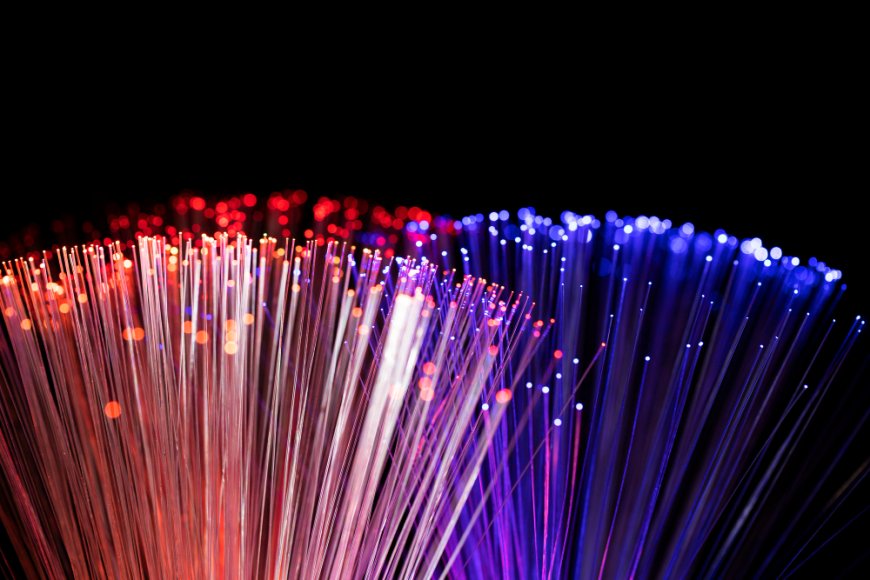Exploring Fiber Internet: What You Need to Know

In today’s digital age, having a reliable internet connection is more important than ever. Whether you’re streaming your favorite shows, working from home, or gaming online, the speed and reliability of your internet service can significantly impact your experience. One of the best options for high-speed internet is fiber. Understanding what fiber internet is and how to choose a fiber internet service provider can help you make the right decision for your home or business.
What is Fiber Internet?
Fiber internet, often referred to simply as fiber, uses fiber-optic technology to transmit data. Unlike traditional cable or DSL internet, which rely on copper wires, fiber optics use thin strands of glass or plastic to send information as light signals. This technology allows for incredibly fast internet speeds and is capable of delivering symmetrical download and upload speeds, meaning you can upload data as quickly as you can download it.
Speed and Performance
One of the standout features of fiber internet is its speed. Many fiber connections offer speeds ranging from 100 Mbps (megabits per second) to 1 Gbps (gigabit per second) or even higher. This means you can download a full-length movie in seconds or stream multiple shows in high definition without any buffering issues.
Moreover, fiber internet is less susceptible to interference than other types of connections. This makes it a more stable option for households with multiple users or devices. Whether you’re playing online games, video conferencing, or streaming 4K content, fiber can handle the demands with ease.
Reliability
In addition to speed, fiber internet is known for its reliability. Because it uses light to transmit data, it can cover long distances without losing signal quality. This means you are less likely to experience slowdowns during peak usage times, which is often a problem with cable or DSL connections. Furthermore, fiber networks are generally more resilient to environmental factors like storms or electrical interference, resulting in fewer outages.
Benefits of Fiber Internet
1. Symmetrical Speeds
One of the most significant advantages of fiber internet is its symmetrical upload and download speeds. This is particularly beneficial for activities that require a lot of data to be sent back and forth, such as video conferencing, cloud computing, and online gaming. With fiber, you won’t experience delays when uploading large files or participating in live streams.
2. Future-Proof Technology
Fiber-optic technology is considered future-proof. As the demand for high-speed internet continues to grow, fiber is well-positioned to meet those needs. With the capability of supporting higher bandwidth, fiber networks can easily accommodate advancements in technology and increased data consumption without needing a complete overhaul.
3. Enhanced Security
Fiber internet also offers enhanced security features. Since data is transmitted through light signals, it is harder to tap into a fiber connection compared to copper cables. This makes fiber a more secure option for businesses and individuals who prioritize online privacy.
4. Eco-Friendly
Another advantage of fiber internet is its eco-friendly nature. Fiber-optic cables use less energy to transmit data compared to traditional copper cables, resulting in a smaller carbon footprint. This can be an important factor for environmentally conscious consumers.
Choosing a Fiber Internet Service Provider
Now that you understand the benefits of fiber internet, the next step is to find a suitable fiber internet service provider. Here are some factors to consider when making your choice:
1. Availability
First and foremost, check the availability of fiber internet in your area. While fiber networks are expanding rapidly, they are still not as widely available as cable or DSL. Visit the websites of potential providers to see if they offer service in your location.
2. Speed Options
Different fiber internet service providers may offer various speed packages. Evaluate your household’s internet needs. If you have multiple users who stream, game, or work from home, you may want to choose a higher-speed plan. Conversely, if your internet usage is more casual, a lower-tier plan might suffice.
3. Pricing
Compare pricing among different fiber internet providers. While fiber internet is generally more expensive than DSL or cable, the price can vary significantly between providers. Look for promotional offers or bundles that can help you save money. Additionally, keep an eye out for any hidden fees, such as installation costs or equipment rentals.
4. Customer Service
Good customer service is crucial when dealing with any internet service. Read reviews or ask for recommendations from friends or family to find out about the customer service reputation of potential providers. A company with excellent customer service can make troubleshooting issues much easier.
5. Contracts and Commitment
Some fiber internet service providers may require long-term contracts, while others offer month-to-month plans. Review the terms carefully to understand what you’re committing to and whether there are penalties for early termination.
6. Equipment Requirements
Ask about the equipment required for your fiber internet connection. Some providers may include a router with your plan, while others may charge a rental fee or require you to purchase your own. Ensure you have all the necessary equipment to make the most of your fiber internet service.
Conclusion
Fiber internet is an excellent choice for anyone looking for fast, reliable, and future-proof internet service. With its high speeds, symmetrical upload and download capabilities, and enhanced security features, fiber is ideal for households with multiple users or those who rely heavily on the internet for work or entertainment.
What's Your Reaction?
























